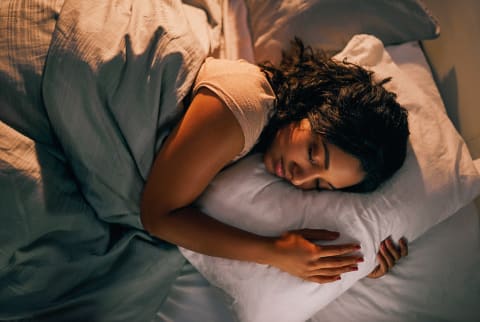Luckily, clinical psychologist and sleep expert Aric Prather, Ph.D., recently shared his go-to tricks on the mindbodygreen podcast—here’s a quick overview: Be sure to reserve your bed for sleep or other relaxing activities. If you work from home, try to work in a different space. Even if it’s in the same room, opt for a desk and chair rather than sitting in your bed. And if you begin to feel restless in bed when you’re trying to fall asleep, get up and do something else, Prather says. “Maybe it’s reading, maybe it’s watching television, whatever it is,” he notes. (For light-emitting activities, consider these blue light shades.) “Find things that facilitate relaxation for you.” This change of scenery may be just what you need. Instead, look for ingredients like magnesium, an essential mineral that promotes relaxation, the jujube botanical used in traditional Chinese medicine for its calming effects, and PharmaGABA®, a widely studied amino acid neurotransmitter that is clinically shown to support sleep quality.* Here’s a list of nine A+ options, if you’re in the market for a new natural sleep aid. So if you feel overwhelmed trying to put together a game plan to fall asleep, abandoning that idea for a little while might actually help—especially if you pair this mentality with a relaxing activity, like reading or watching television (wearing blue-light-blockers), as Prather mentioned above. What’s more, relieving that pressure to fall asleep may help you shake some of the jitters that come with being awake longer than you planned. This, in turn, may just help you fall asleep faster, too.



